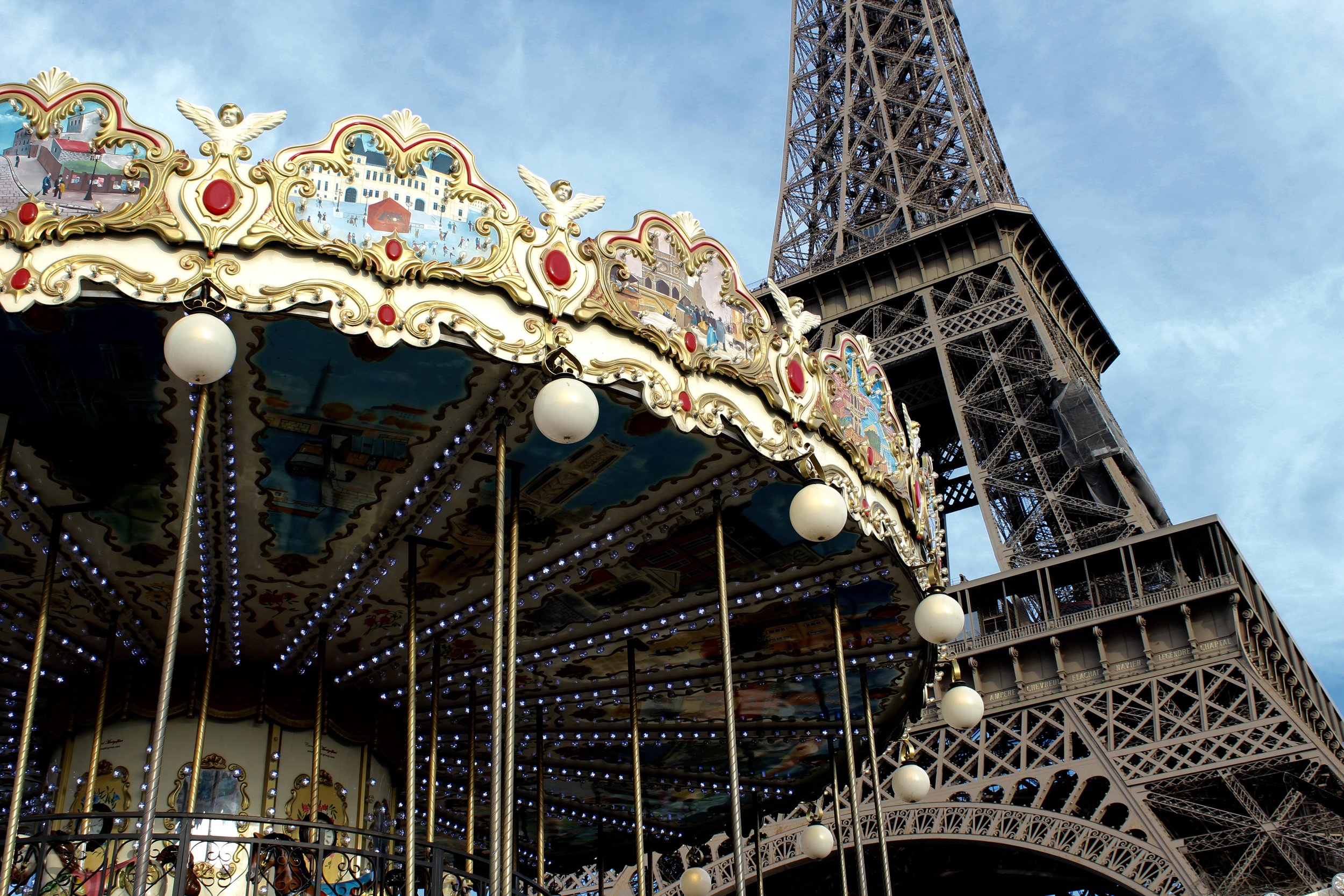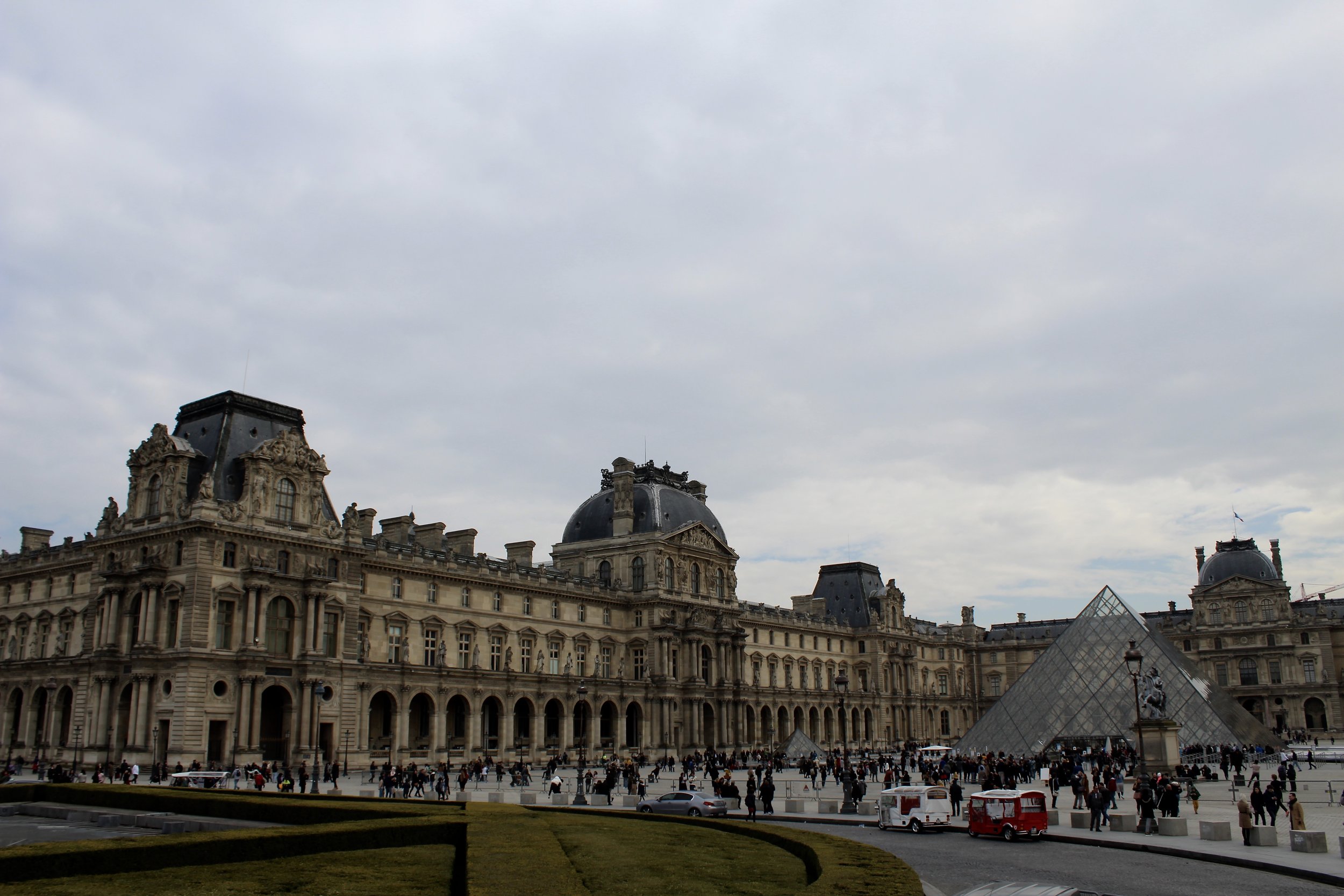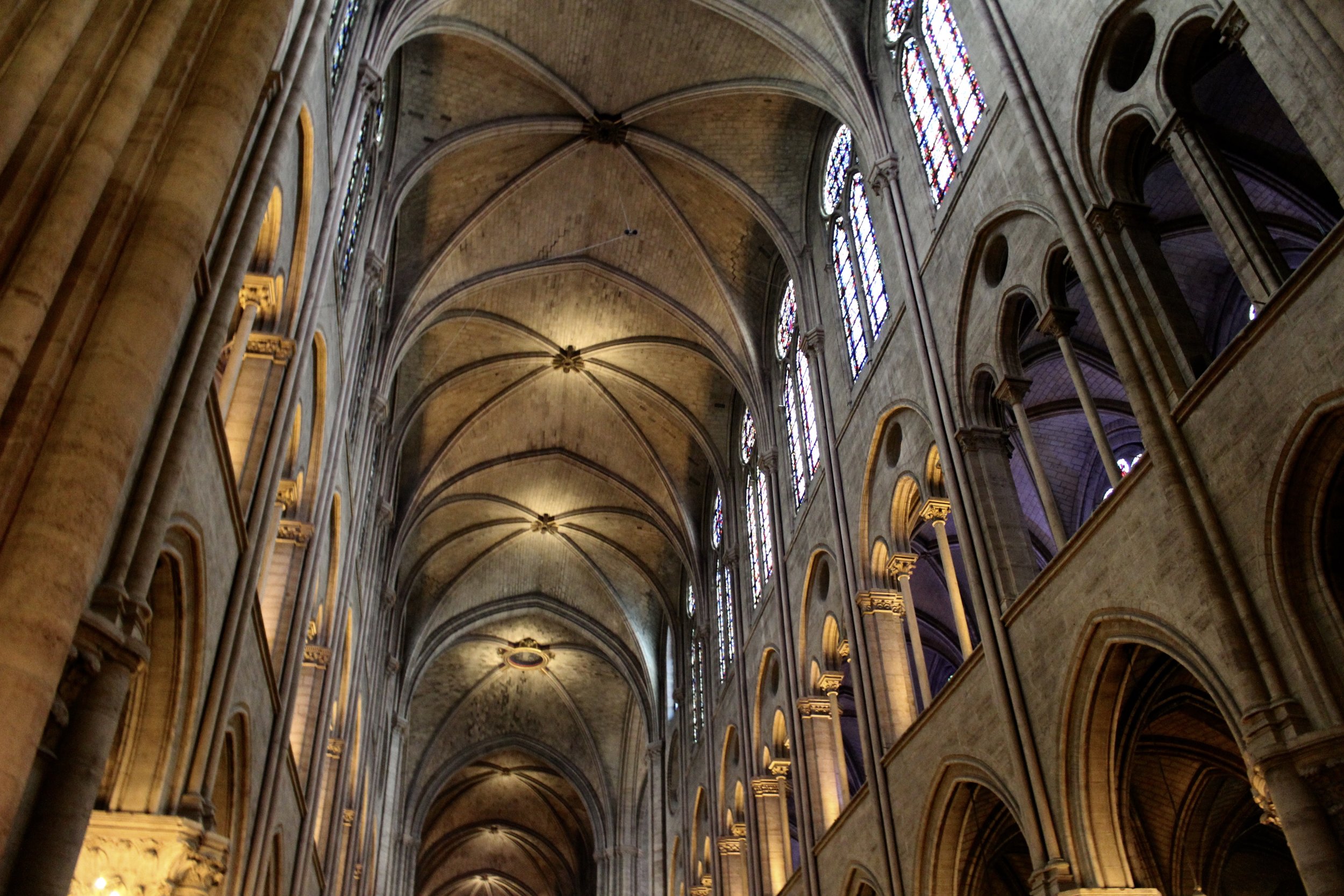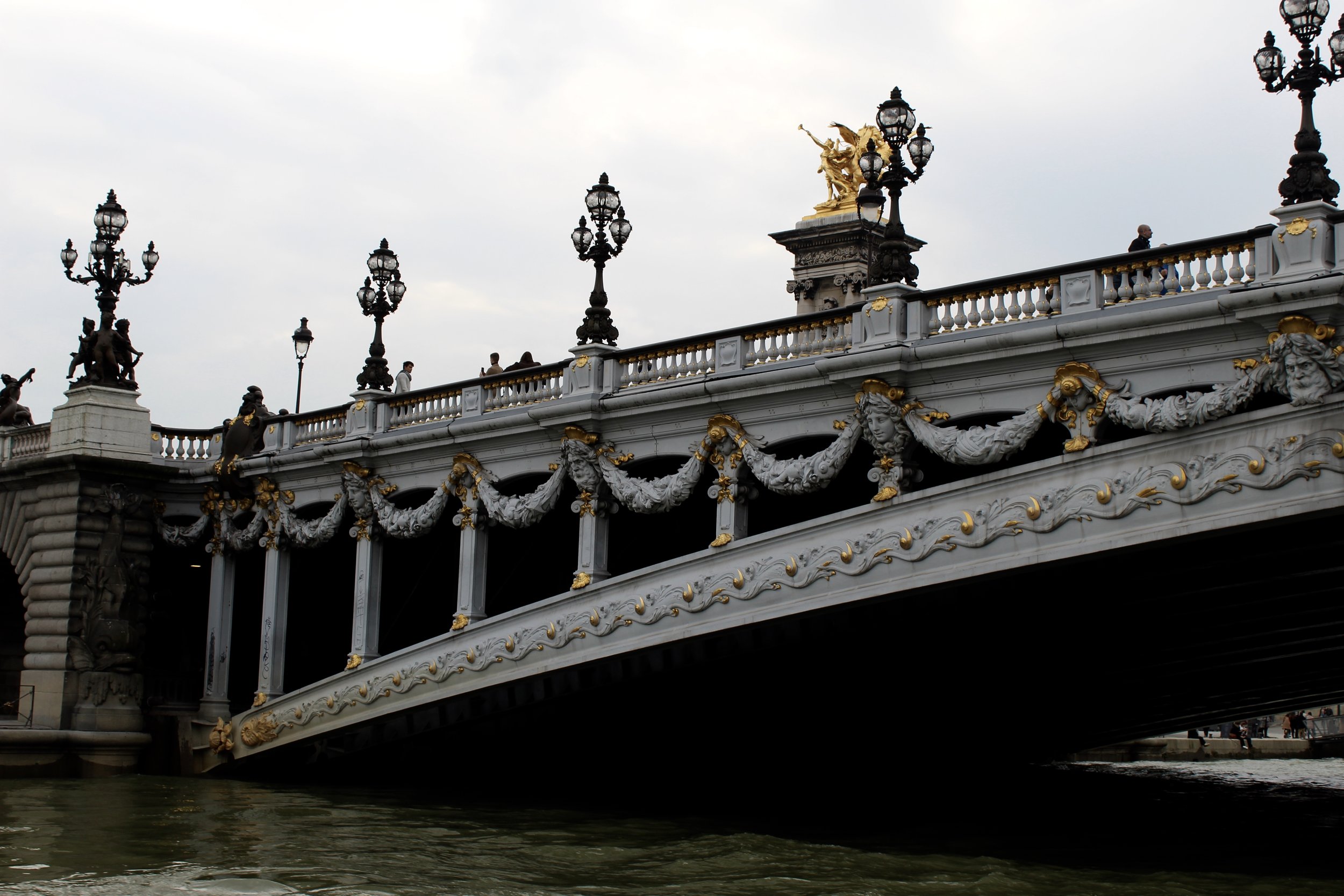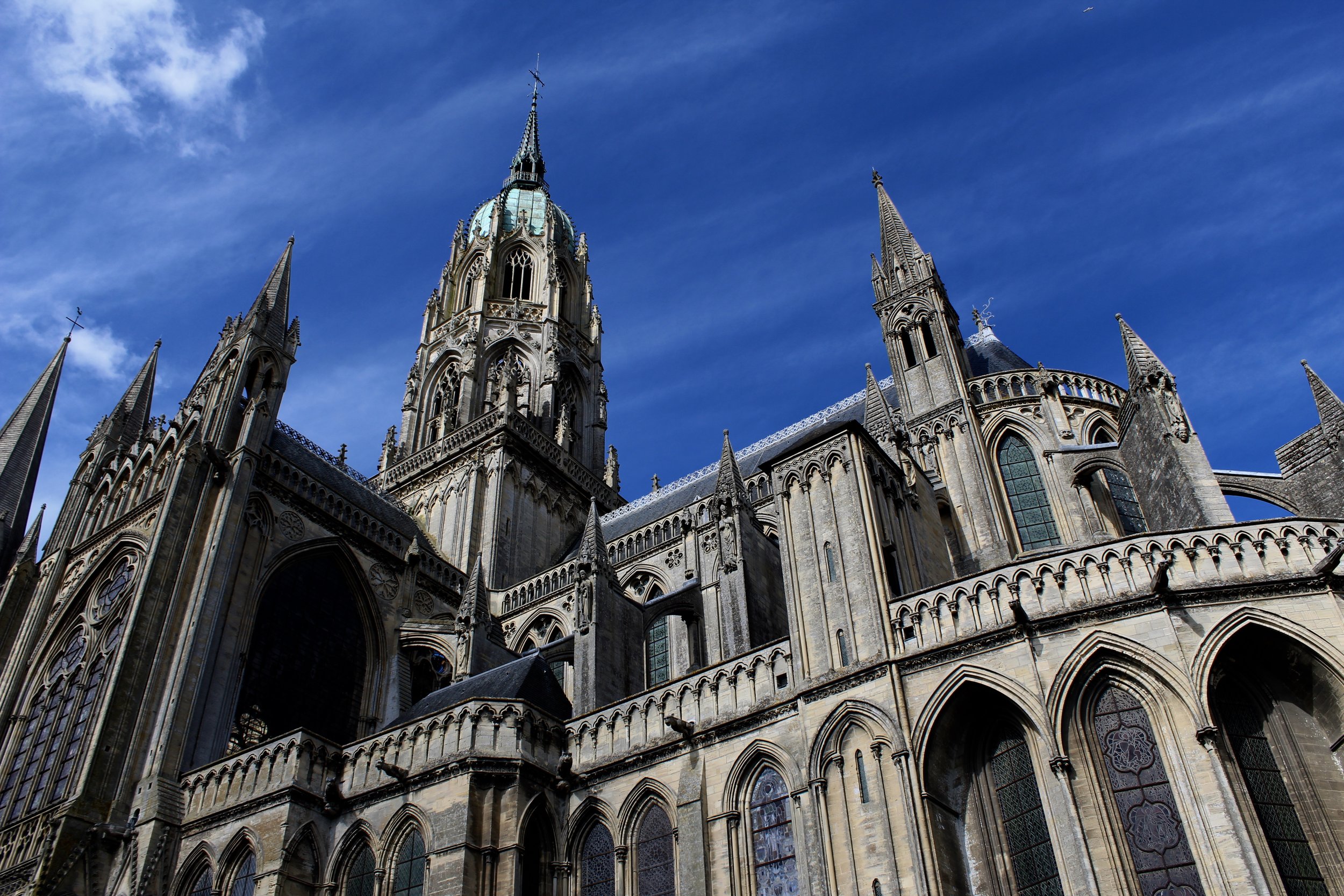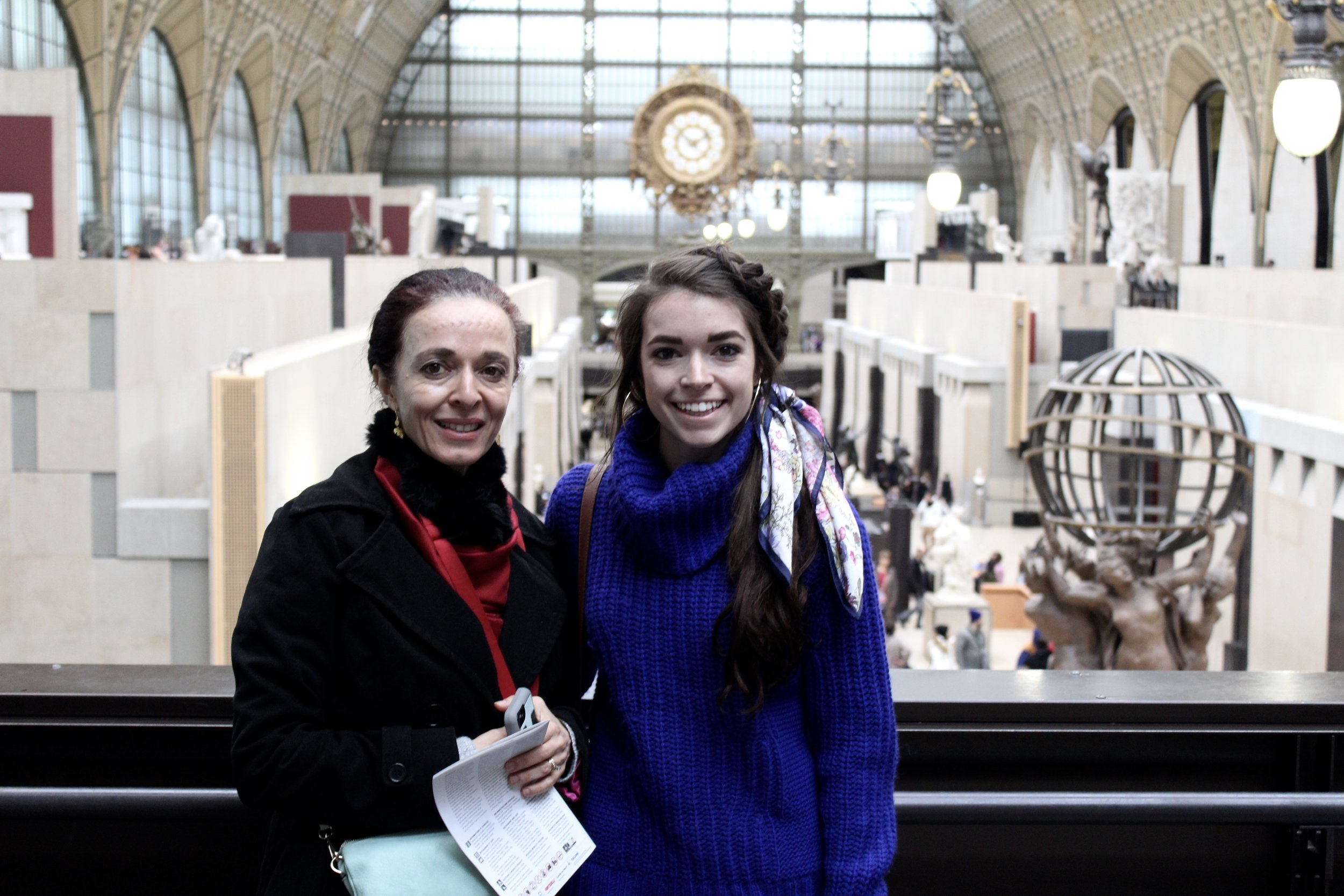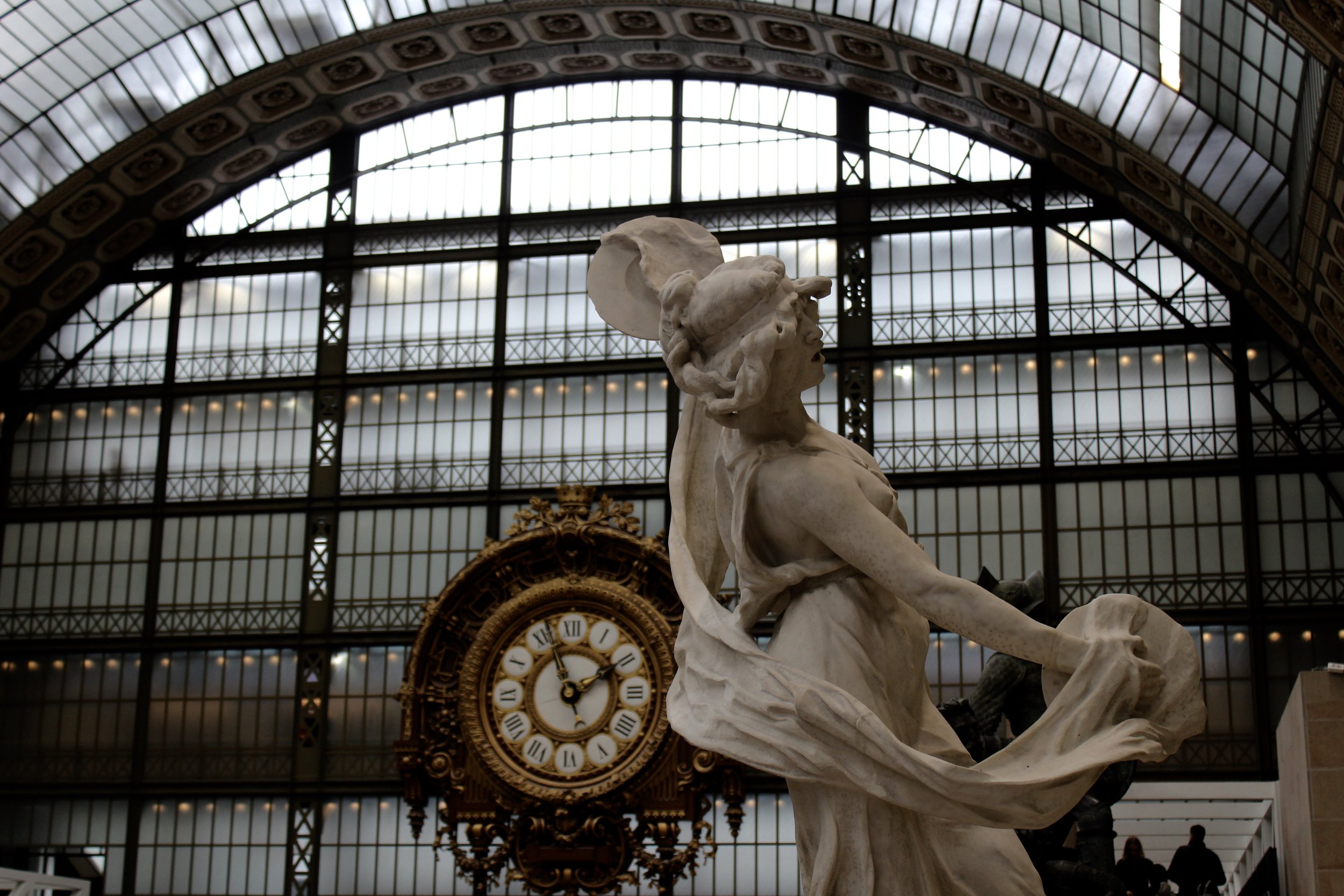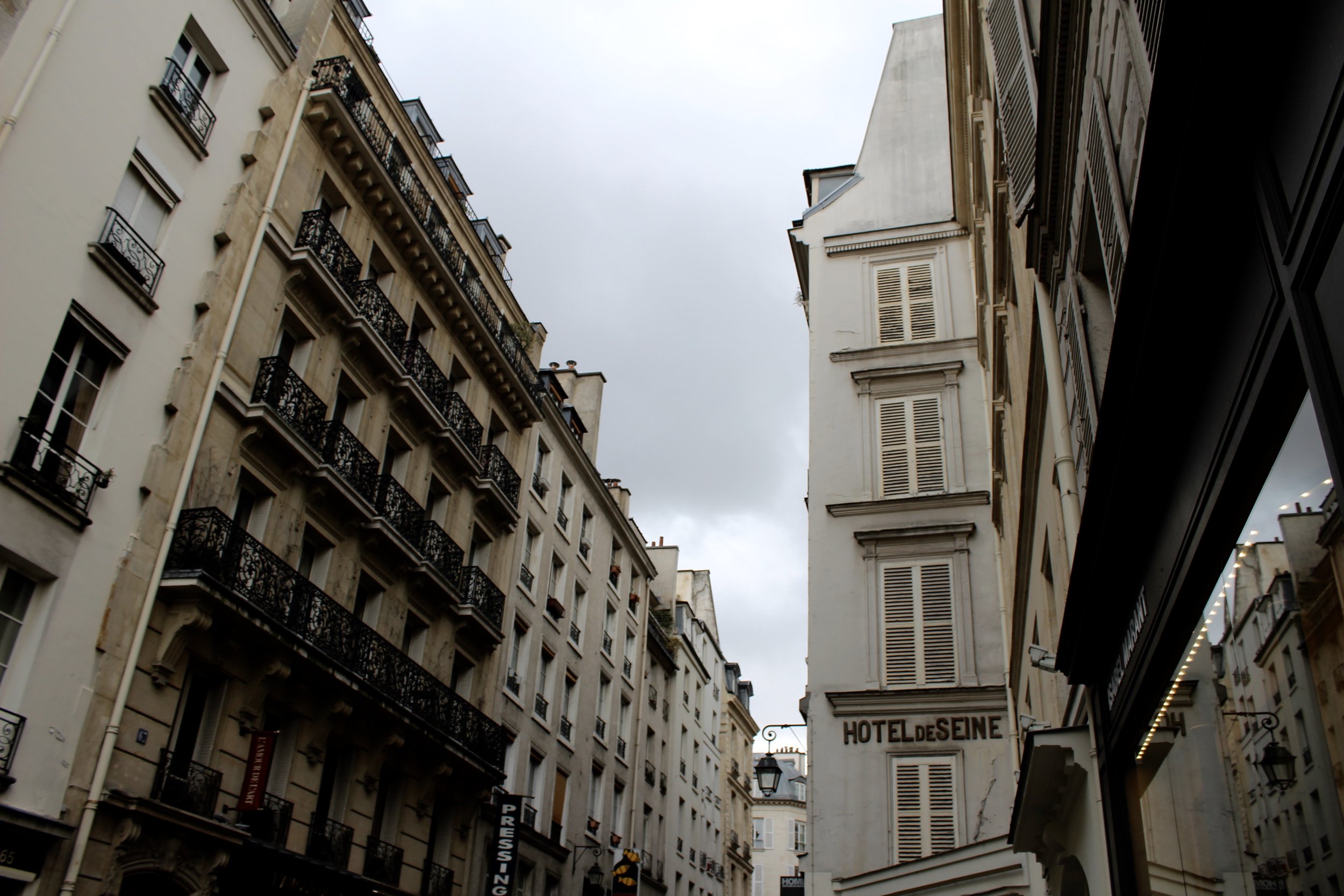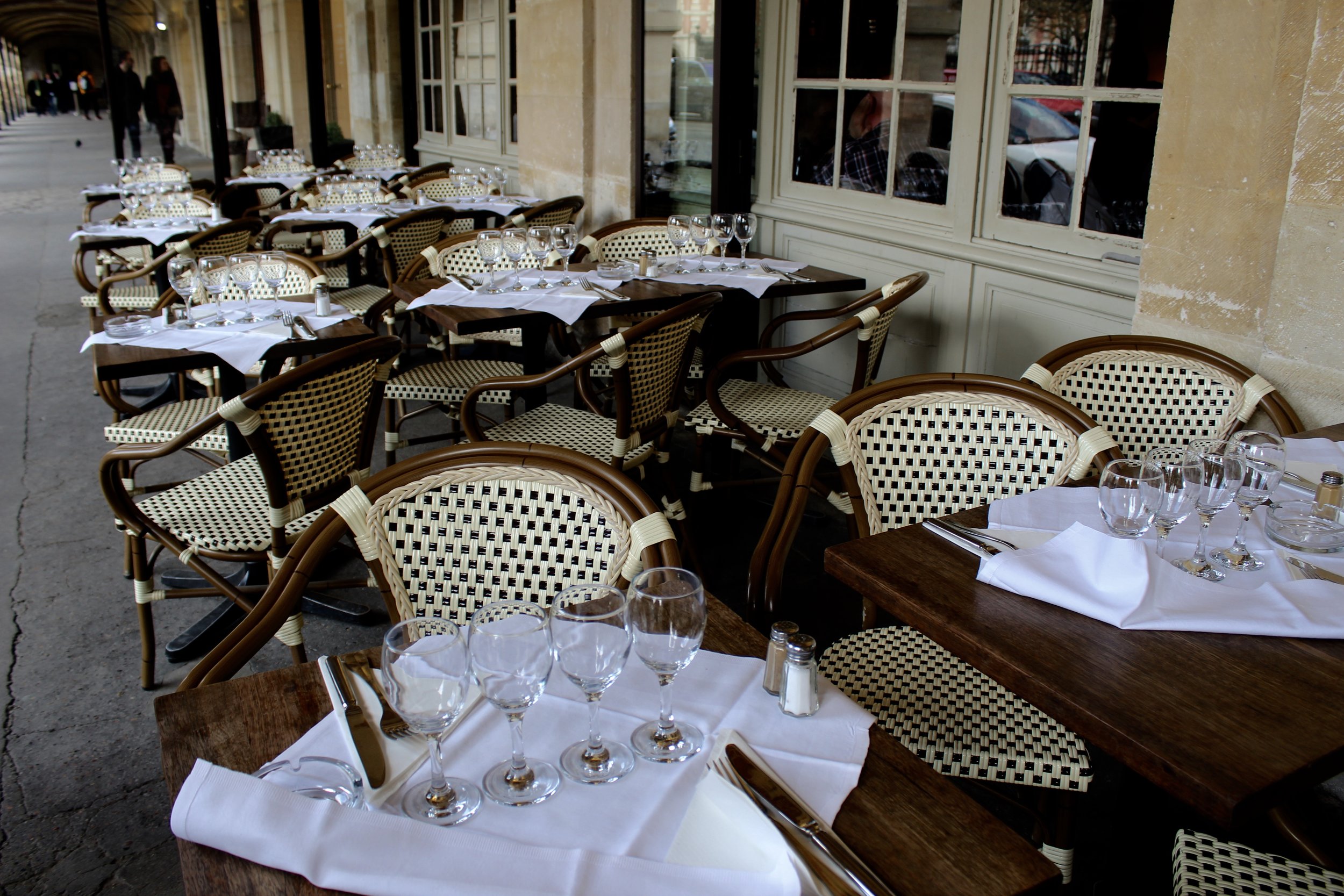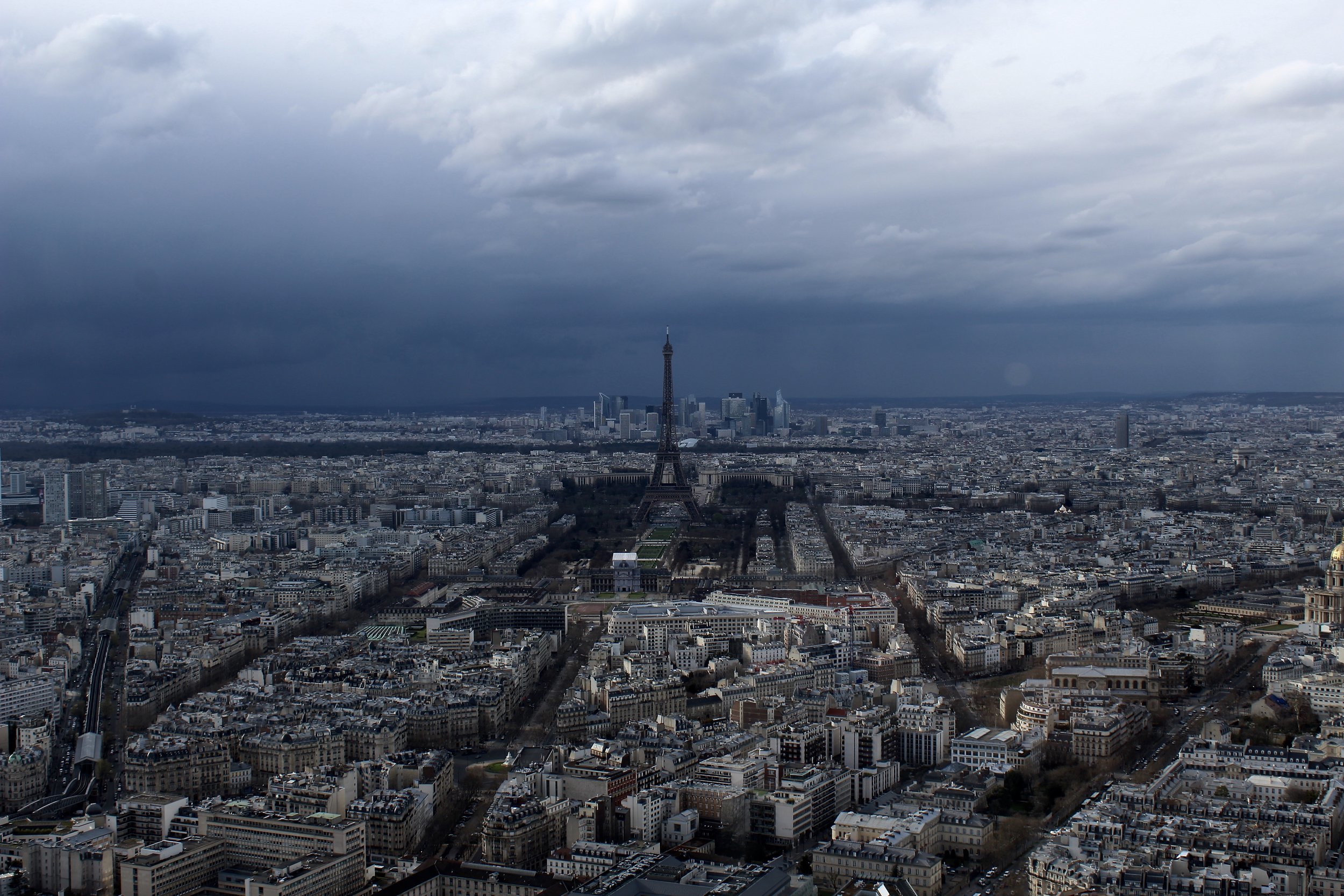An Arab in Paris: In Pursuit of Life, Liberty, and Duck Confit
I procrastinated this post because I struggled to plot out what felt like a story that deserved to be on the Internet. As I wrote and rewrote the details, I became more frustrated that I couldn’t think of anything more profound than ‘I went to Paris with my family and we had a great time.’ What did I learn? What transformative experience did I have? If croissants count as a transformative experience (they do) then I can confidently say I had 10 or 20.
In the stead of a gripping tale, I found an appreciation of seemingly banal details. I became content with a perfectly delightful trip in a city I adore, a city that prides itself on indulging in the ordinary. A week in Paris is extravagant in itself — in every detail, right down to the richness of the butter served alongside each baguette. In that vein, I have no dramatic tale of Arabs in Paris, but rather a series of moments and thoughts I scribbled my pocket journal along the way:
Stepping out of the metro and into the sidewalk in Paris feels like being wrapped in a newspaper: crisp wind, grey clouds, and they type of cold that you don’t really notice until you finally put on the hat you’d been carrying around and realize how much of a difference it makes. It was Paris in March, after all. You don't come here for the weather.
The streets had empty stretches for several blocks between tourist traps — a hallmark of every European destination I’ve been to, as is a river that cuts the city in half. If it ain’t broke, don’t fix it, right?
We spent the first day on a bus tour to get our bearings; Walker and I braved the rain to people-watch on the top level, while our parents smartly nestled in the lower level and listened to the guide. Between the tour, prior visits, and recommendations from friends back home, we set our hearts on major sights to see and restaurants to patron throughout the week: the Cathedral de Notre Dame, Eiffel Tower, Musee d’Orsay, the Louvre the Arc de Triomphe, Jardin du Luxembourg, Le Marais.
One of the most noticeable differences between French and American life was how many young people were smoking cigarettes. At first I was shocked, because I assumed other developed countries are always healthier than the U.S., but perhaps this is what it’s like to have universal health care: you can just walk around effectively killing yourself all the time, with no real fear of consequence? Incredible.
Similarly pervasive was the superiority of French-girl style. I've been to Paris before, and read countless articles on the beauty and style secrets of the quintessential French girl, but in person, all my prior knowledge was forsaken. A mere coat of mascara and Dior 999 seemed to mark the face of every millennial woman who passed by with natural brows, tousled bangs and a minimalist outfit that was equal parts approachable and completely beyond my reach. Draw me like one of your French girls just took on a whole new meaning: for me, it's now a desperate plea to be perceived as even a fraction as effortlessly cool. Please.
Unpopular opinion: I think the Louvre is kind of overrated. And that’s coming from someone who spends hours of her free time in art museums. It’s a lot of white guys who painted themselves into pictures with the Virgin Mary holding baby Jesus. So if you’re not super into that, or Greek mythology, or Islamic history (which I am, for the record), I’d have to recommend Musee d’Orsay instead.
Underrated, on the other hand, was Le Marais. Historically home to the aristocracy, the Marais was largely deserted after the French Revolution, but the architecture survived through wars of the next two centuries, and the neighborhood eventually became home to the Jewish and LGBTQ communities in Paris. In the southeast corner of Palace Royale hides the preserved apartment where Victor Hugo wrote stories that captivated the world for centuries to come: Les Miserables, and The Hunchback of Notre Dame. Free entry granted us a peek at the view from his window where he crafted his tales; he only ever wrote while standing up. A fifteen minute walk to the north, we found world renowned sandwiches at L’as du Falafel, and the single largest collection of Pablo Picasso’s artwork and personal collections.
Before our tour of Notre Dame, we bought two pies from Alimento, a pizzeria with an unsuspecting sign, hidden behind a side street off Rue de Saint-Germain des Prés. If I could have one wish granted for the rest of my life, it would be that I am never without the scent of this Neapolitan establishment; it smelled the way bathing in pizza sauce probably feels: garlicky, brick-fired tomatoes covering every inch of your skin and hair so completely that you’re not even embarrassed at how much you’re enjoying it even though other people are definitely staring. That I didn’t get a picture of our pizza is a testament to how unabashedly we scarfed it down.
At the end of the tour, we passed by ‘point zero,’ which is supposedly the exact center of Paris. An urban myth — one I took very seriously — says that if you step directly on the spot, it’s guaranteed that you’ll return to the City of Light again. With a toothy smile, I pressed all ten toes firmly into the brass-plated ground, certain that I’ll be back.
